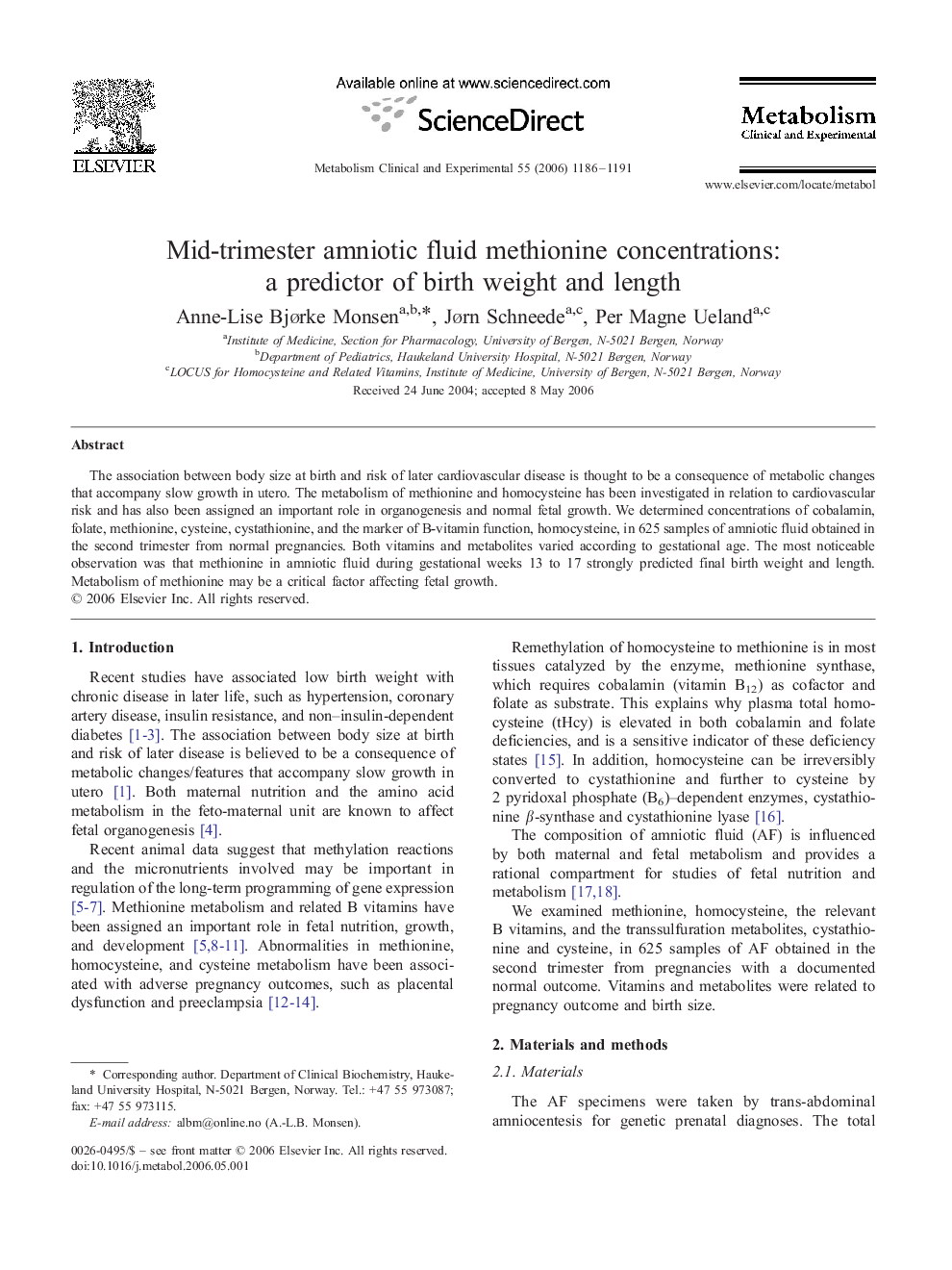| Article ID | Journal | Published Year | Pages | File Type |
|---|---|---|---|---|
| 2807623 | Metabolism | 2006 | 6 Pages |
The association between body size at birth and risk of later cardiovascular disease is thought to be a consequence of metabolic changes that accompany slow growth in utero. The metabolism of methionine and homocysteine has been investigated in relation to cardiovascular risk and has also been assigned an important role in organogenesis and normal fetal growth. We determined concentrations of cobalamin, folate, methionine, cysteine, cystathionine, and the marker of B-vitamin function, homocysteine, in 625 samples of amniotic fluid obtained in the second trimester from normal pregnancies. Both vitamins and metabolites varied according to gestational age. The most noticeable observation was that methionine in amniotic fluid during gestational weeks 13 to 17 strongly predicted final birth weight and length. Metabolism of methionine may be a critical factor affecting fetal growth.
